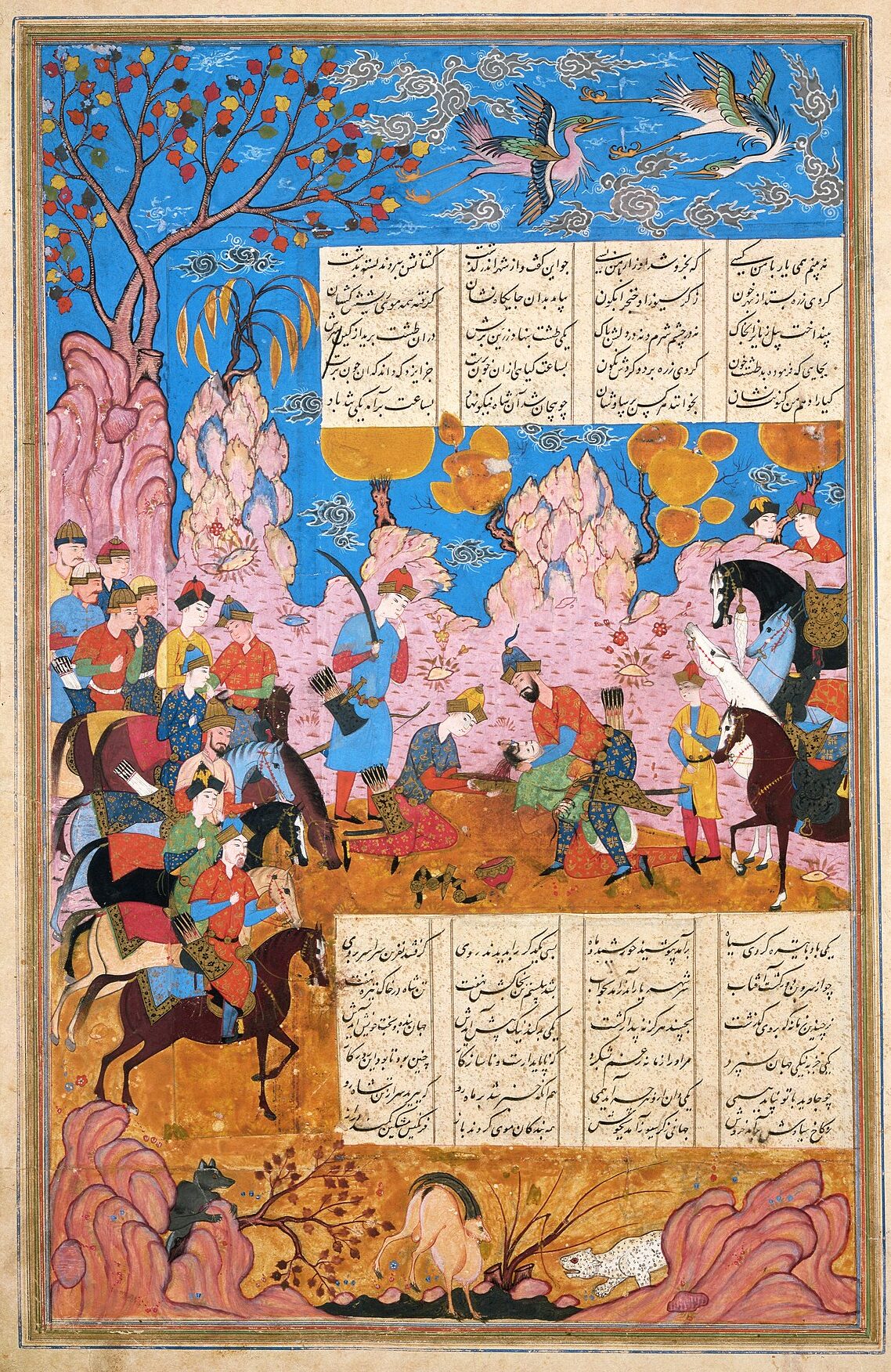The story of Siavash in the Shahnameh, penned by Ferdowsi, begins with his birth to a woman who becomes the wife of Kay Kavus, the king of Iran. However, astrologers and soothsayers predict a dark and troubled fate for the handsome Siavash, which deeply disturbs Kay Kavus. Soon after, Rostam, the noble warrior, approaches the king and requests to take Siavash under his wing. The king agrees, and Rostam raises Siavash, teaching him the art of combat, kingship, and governance. When Siavash matures and masters these skills, he returns to Kay Kavus’s court alongside Rostam.
Yet, the tale does not end there. Sudabeh, Siavash’s stepmother, becomes infatuated with him, falling deeply in love. Despite her advances, Siavash, renowned for his chastity and virtue, rejects her. Angered by his rejection, Sudabeh falsely accuses him of betraying her. In response, Kay Kavus orders a trial by fire to determine the truth. Siavash, riding his horse, passes through the fire unharmed, proving his innocence to all.
Later, Iran is attacked by Afrasiab, the king of Turan. To escape court tensions, Siavash volunteers to lead the battle. Afrasiab, troubled by a dream, offers peace, which Siavash accepts despite his father’s orders. Siavash marries Afrasiab’s daughter, Farangis, and builds the city of Gang Dezh. However, Afrasiab, swayed by his advisors, sees Siavash as a threat and betrays him, leading to Siavash’s tragic death.
Siavash is often seen as a symbol of innocence, sacrifice, and martyrdom in Persian tradition. His life and tragic death represent themes of loyalty and righteousness. In the iconic image often associated with this story, we see the powerful scene of Siavash passing through the fire. This poignant moment embodies his courage and ultimate sacrifice.
Shakespeare’s Macbeth, though a different character in many ways, shares a theme of betrayal with Siavash, both being figures who face treachery despite their innocence. Similarly, Hamlet, another Shakespearean prince, suffers betrayal at the hands of those close to him, despite his pure intentions. Both Hamlet and Siavash meet tragic ends in their respective stories.

